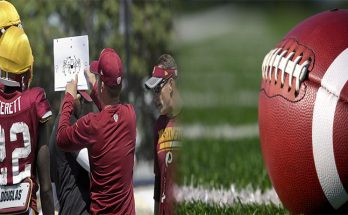Football, a sport revered and cherished by millions worldwide, has a rich and intriguing history that dates back centuries. From its humble beginnings to its global popularity, this article explores the origins of football and the early rule adaptations that shaped the game we know and love today.
Origins of Football
The roots of football can be traced back to ancient civilizations. In various forms and under different names, the concept of kicking a ball has been a part of human recreational activities for thousands of years. Ancient civilizations, such as the Chinese, Greek, and Roman societies, all had their own versions of games involving a ball.
However, it was in medieval Europe that the foundations of modern football were laid. During the Middle Ages, a game called “mob football” gained popularity in villages and towns throughout England. In this early version of the game, two groups of players, often representing rival villages, would compete to move a ball across a designated area using any means necessary, including kicking, running, and even carrying the ball.
Early Rule Adaptations
As football began to take shape and gain popularity, the need for standardized rules became evident. Early on, there were no fixed rules, and the game was often played with local variations and individual interpretations. However, several important rule adaptations emerged during the 19th century that laid the foundation for the modern game.
Cambridge Rules
In 1848, a significant development occurred when the students from Cambridge University established a set of standardized rules known as the “Cambridge Rules.” These rules played a crucial role in shaping the early structure of the game. They introduced the concept of a goal, defined the distance between goals, and prohibited the use of hands during play. The Cambridge Rules were influential in the development of football and became the basis for future rule adaptations.
Sheffield Rules
In 1857, the Sheffield Football Club in England formulated its own set of rules, known as the “Sheffield Rules.” These rules featured several notable innovations, including the introduction of corner kicks, free kicks, and throw-ins. The Sheffield Rules also placed emphasis on fair play, discouraging deliberate physical harm to opponents.
The FA and Modern Football
In 1863, the Football Association (FA) was founded in England, marking a turning point in the history of football. The FA aimed to create a universal set of rules to ensure consistency and fairness in the game. The rules established by the FA became widely adopted and formed the basis of modern football.
The FA’s rules included guidelines on player numbers, the size of the field, and the use of goalkeepers. They prohibited tripping opponents and handling the ball intentionally. Additionally, the FA introduced the concept of referees empowered to enforce the rules and maintain order during matches.
The Global Spread
Football’s popularity surged rapidly following the establishment of standardized rules. The game quickly spread beyond England and gained a foothold in other parts of the world. The first international football match occurred in 1872 between England and Scotland, further fueling the sport’s growth.
Over time, various football associations and governing bodies were established in different countries, each adapting the rules to suit their preferences. Despite these regional adaptations, the core principles governing the game remained largely intact, promoting fair play, skill, and teamwork.
The history of football is a fascinating journey from its ancient origins to the establishment of standardized rules that set the stage for its global popularity. From the rough and unstructured games of the medieval period to the refined version we know today, football has evolved into an organized and universally loved sport. The early rule adaptations, such as the Cambridge Rules and Sheffield Rules, laid the groundwork for the modern game, while the Football Association’s comprehensive regulations solidified football’s place as one of the world’s most cherished sports.





